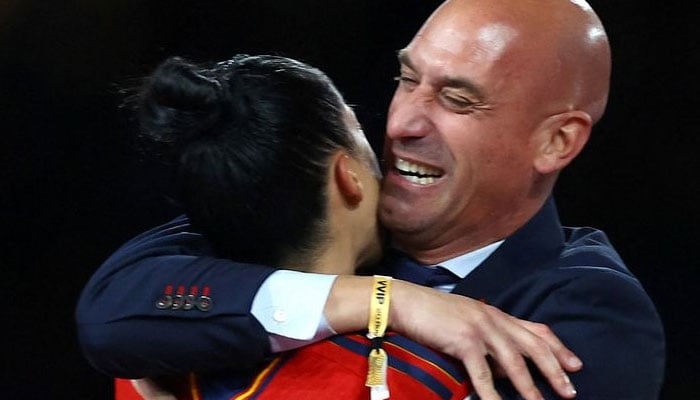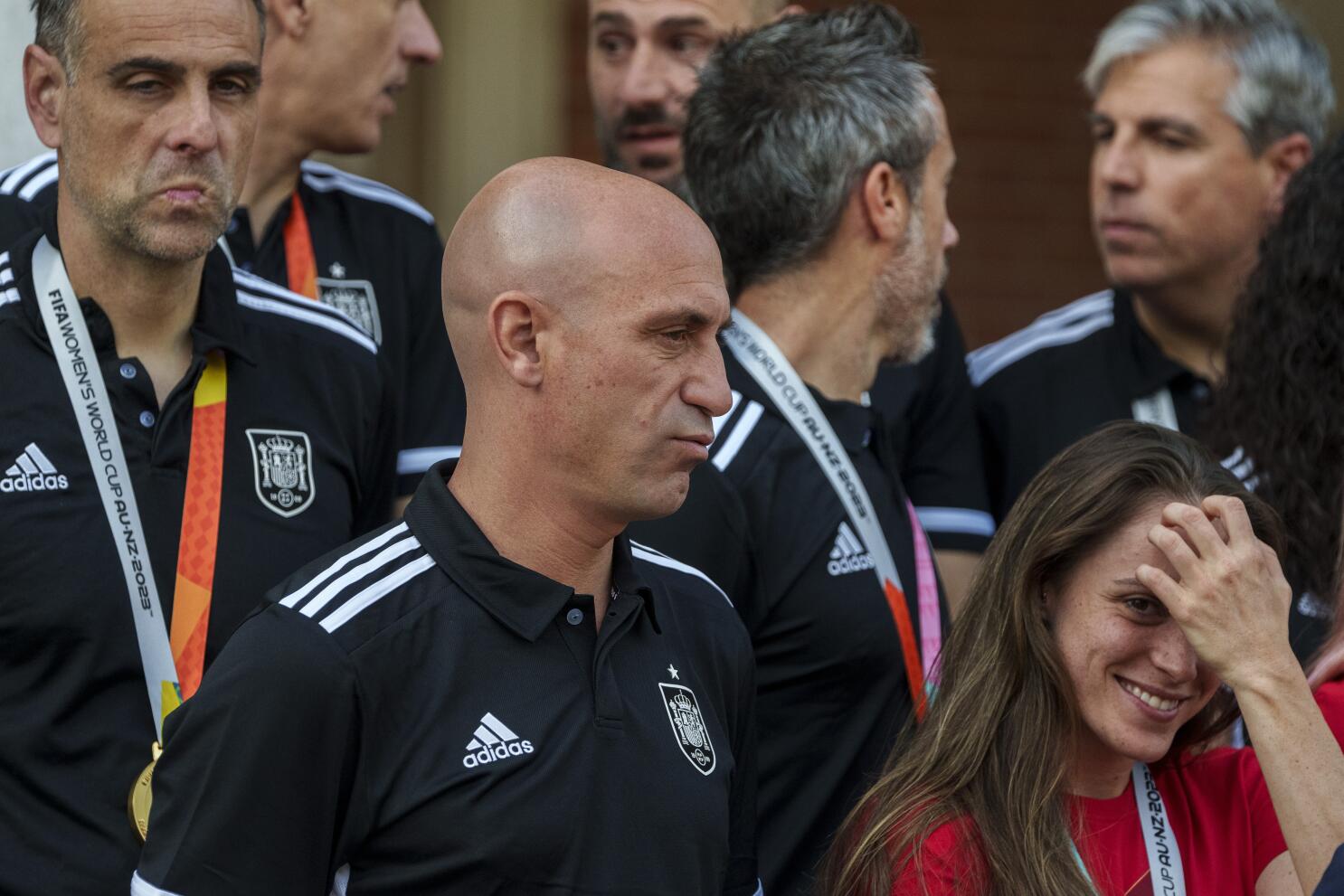Spain’s Football Federation Strongly Denies Allegations of Unconsented Kiss by President: Stance on Mutual Exchange Sparks Heated Debate

Spain’s Football Federation Strongly Denies Allegations of Unconsented Kiss by President: Stance on Mutual Exchange Sparks Heated Debate
In a surprising turn of events following Spain’s triumph in the Women’s World Cup, the nation’s football landscape has been marred by controversy. The Spanish Football Federation finds itself entangled in a heated dispute with Jennifer Hermoso, a standout player in the championship-winning team, over allegations of an unconsented kiss by the federation’s president, Luis Rubiales. The repercussions of this clash have extended beyond mere accusations, with the federation threatening legal action against Hermoso for what it deems as falsehoods.
At the heart of the matter lies a moment that should have been celebratory, a poignant medal ceremony honoring Spain’s achievement in the Women’s World Cup. However, this ceremony took an unexpected turn when Hermoso publicly claimed that she had not granted consent for the kiss she received from Luis Rubiales during the event. Taking to social media, Hermoso expressed her feelings of vulnerability and labeled the act as “sexist” and “out of place,” emphasizing her lack of consent in the matter.

The response from the Spanish Football Federation was swift and vigorous. In an official statement issued on the same day as Hermoso’s claim, the federation staunchly defended Rubiales. Contrary to Hermoso’s assertion of non-consent, Rubiales characterized the kiss as “mutual,” setting the stage for a clash of narratives that has captured the nation’s attention. The federation’s statement also contained strong language, denouncing what it referred to as “unjust campaigns” and “fake feminism,” suggesting that the controversy might be exploited for ulterior motives.
The allegation itself has stirred intense debate across Spain. Supporters of Jennifer Hermoso, many of whom see her as a role model for women in sports, rallied around her declaration of non-consent. They argue that any physical contact without clear consent is inappropriate, irrespective of the context. This viewpoint has tapped into broader conversations about consent and gender dynamics, resonating with the global discourse on women’s rights and bodily autonomy.
Conversely, the federation’s stance has garnered its own set of supporters. These individuals point to the supposed mutuality of the kiss and question the timing and motivation behind Hermoso’s public proclamation. Some critics of Hermoso’s claims label them as an attempt to tarnish the reputation of the federation and its president. They contend that the allegations could be used as a weapon in a larger ideological battle rather than serving the cause of genuine feminism.
The clash between Hermoso and the federation has ignited discussions on several fronts. One is the power dynamics within sports organizations and the treatment of athletes, especially women, by those in leadership positions. Questions are being raised about the potential abuse of power and the obligation of organizations to prioritize the well-being and autonomy of their players. This incident also underscores the challenges female athletes might face when speaking out against influential figures in sports, highlighting the broader issue of gender inequalities prevalent in various industries.

Moreover, the controversy casts a spotlight on the intricate interplay between personal experiences and collective progress. While Hermoso’s claims are deeply personal, they have led to a larger discourse on the nature of consent and the importance of respecting boundaries. This episode emphasizes the potential of individual actions to spark broader societal conversations and incite change.
Amid the cacophony of conflicting claims and impassioned debates, there is an opportunity for dialogue and growth. The incident involving Jennifer Hermoso and the Spanish Football Federation has exposed fault lines within the world of sports, but it also presents a chance for reflection and progress. As the nation grapples with the aftermath of its Women’s World Cup victory being overshadowed by controversy, there is a unique moment for stakeholders to come together.
Open discussions that encompass athletes, sports administrators, advocates for gender equality, and the public can pave the way for establishing clearer guidelines on consent, respect, and appropriate conduct in such celebratory events. From adversity, there is the potential to forge a stronger commitment to athletes’ well-being and to foster an environment where mutual respect is paramount. Only time will tell if this incident becomes a turning point in Spanish football’s journey towards greater unity and understanding.

As the situation continues to unfold, the spotlight remains on the Spanish Football Federation, Jennifer Hermoso, and the broader implications of their clash. The controversy underscores the complexities of modern sports, where the pursuit of excellence on the field intersects with larger societal struggles. The power struggle between personal narratives and official statements, the tension between individual rights and institutional authority, and the significance of each player’s voice in shaping the collective conscience all come to the forefront, creating a multidimensional narrative that goes beyond the boundaries of the football pitch.




